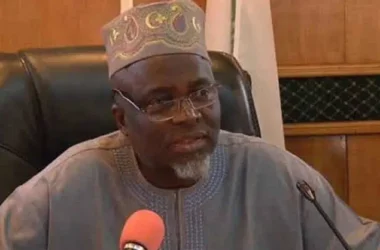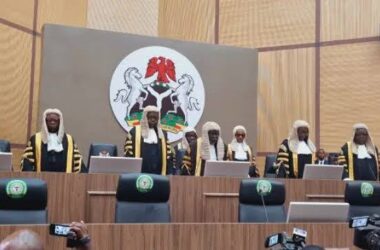The Nigerian Senate has announced that it introduced a total of 983 bills and passed 108 into law over the last two years, as part of its midterm review of the 10th National Assembly.
This was shared in Abuja as the Senate marked its second anniversary since being inaugurated on June 13, 2023.
Speaking on the chamber’s progress, Senate Leader Opeyemi Bamidele shared detailed figures showing steady growth in legislative work under the leadership of Senate President Godswill Akpabio. According to Bamidele, the 2024/2025 legislative session recorded stronger output than the previous year.
“In the 2024/2025 legislative year, 506 bills were initiated in the Senate compared to 477 in 2023/2024—a 6.07% increase. The Senate also fully passed 83 bills into law this session, compared to just 25 in the previous year,” he noted.
He also said 26 executive bills were reviewed during the 2024/2025 session, compared to 13 in the previous year, while private member bills increased slightly from 464 to 480.
The report further showed a rise in legislative activity beyond the number of bills passed. For example, bills awaiting a second reading increased from 45 to 230. However, bills awaiting a first reading decreased from 135 in the 2023/2024 session to 89 in 2024/2025.
The Senate confirmed 116 appointments this session, which was fewer than the 215 confirmed the previous year. Meanwhile, the number of resolved petitions rose to 80, up from 50.
Some of the major laws passed during the period include the Student Loan (Access to Higher Education) Act, 2024; National Minimum Wage Amendment Act, 2024; and the Investments and Securities Act, 2025. Also passed were the Regional Development Commission Acts and various Tax Reform Bills aimed at restructuring Nigeria’s tax system.
Bamidele noted that the Student Loan Act had already made a difference, helping more students access education. He said 1,094,057 students had applied through the Nigerian Education Loan Fund (NELFUND), with 563,279 institutional loans approved and 530,773 upkeep loans processed.
Regarding tax reforms, Bamidele said the new laws would make tax obligations easier to understand, increase investor confidence, and support economic development.
Looking forward, he assured Nigerians that important reforms are still on the table. These include electoral changes, constitutional reviews, and judicial reforms aimed at strengthening democracy and improving legal processes.
“We are committed to ensuring that every vote counts and that democratic participation becomes more credible. Also, judicial reform bills currently before the Senate will help improve appointment processes and overall judicial efficiency,” he added.










